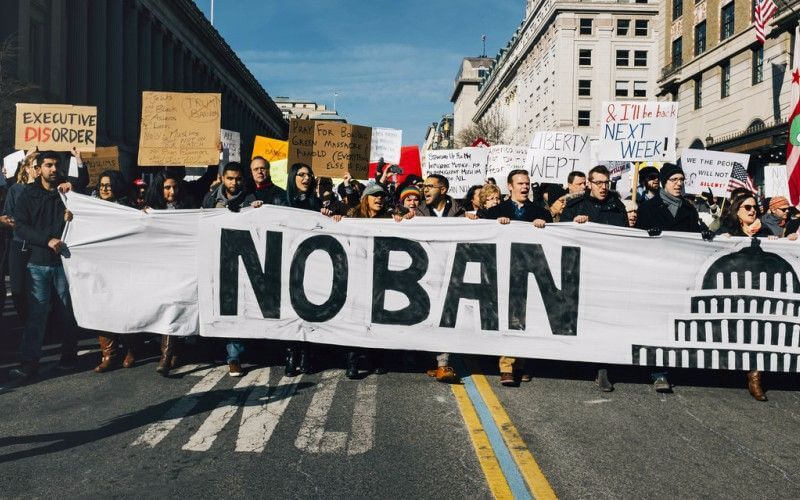Summary: A federal appeals court has allowed for the freeze on the travel ban to continue on the basis of a lack of need for national security.
A federal appeals court has continued the freeze on President Donald Trump’s travel ban. He may as well give up and move on to other things since it seems so unlikely that it will ever be allowed to go into effect.
The U.S. Court of Appeals for the 9th Circuit declared that the travel ban was not in Trump’s power to enforce by preventing the issuance of visas to residents of six countries and suspending the U.S. refugee program. Now there is nowhere else for the travel ban to go but before the Supreme Court. Another had already ruled against the administration’s ban so they had already asked for the court’s input.
This appeals court claims to be different from the others that have blocked the ban by not using his past comments as the basis for their decision. The court also didn’t claim that Trump was breaking the constitution because of an intent to discriminate like other courts have claimed. They strictly focused on whether there was enough of a national security threat to back a travel ban to make it legal and also violated immigration law. They avoided any opinion on the constitutionality of the ban.
The judges wrote, “There is no finding that present vetting standards are inadequate, and no finding that absent the improved vetting procedures there likely will be harm to our national interests. These identified reasons do not support the conclusion that they entry of nationals from the six designated countries would be harmful to our national interests.”
The ban upheld by the U.S. Court of Appeals for the 4th Circuit did not apply to the refugee portion of the executive order. The 9th Circuits freeze does apply to the refugee order to temporarily suspend the admission or lower the cap to 50,000 for the fiscal year.
The court will allow the Trump administration to conduct an internal review in order to assess vetting procedures. They even made the remark that the federal judge in Hawaii was wrong to restrict a review from being conducted.
Of course, President Trump had a response on Twitter, “People, the lawyers and the courts can call it whatever they want, but I am calling it what we need and what it is, a TRAVEL BAN!” By calling it a ban, Trump even contradicts the work of his own press secretary’s attempts to dispute the order being a ban and the Justice Departments reference to it as a “temporary pause” in court.
The judges of the court, Richard A Paez, Ronald M. Gould, and Michael Daly Hawkins were all appointed by Bill Clinton. They listened to arguments last month and targeted their questioning on Trump’s previous statements during his campaign last year. In the end, the judges did not see the major issue being the actual terms of the ban but a lack of justification for it as the primary concern. They admit that the president has the authority to set immigration policy but that it was “not unlimited.”
The evidence the administration presented relies on current conditions of the proposed banned countries and the fact that over 300 people who have entered the United States from those countries are the subject of active counterterrorism investigations.
The judges wrote, “In conclusion, the Order does not offer a sufficient justification to suspend the entry of more than 180 million people on the basis of nationality. National security is not a ‘talismanic incantation’ that, once invoked, can support any and all exercise of executive power.”
Do you think the Trump administration will be able to get the travel ban passed? Tell us in the comments below.
To learn more about the travel ban, read these articles:
- Federal Judges Rule against Trump’s Second Travel Ban
- DOJ Prepares to File Appeal on Travel Ban Holds
- Trump Still Can’t Get Travel Ban Passed
Photo: flickr.com




































